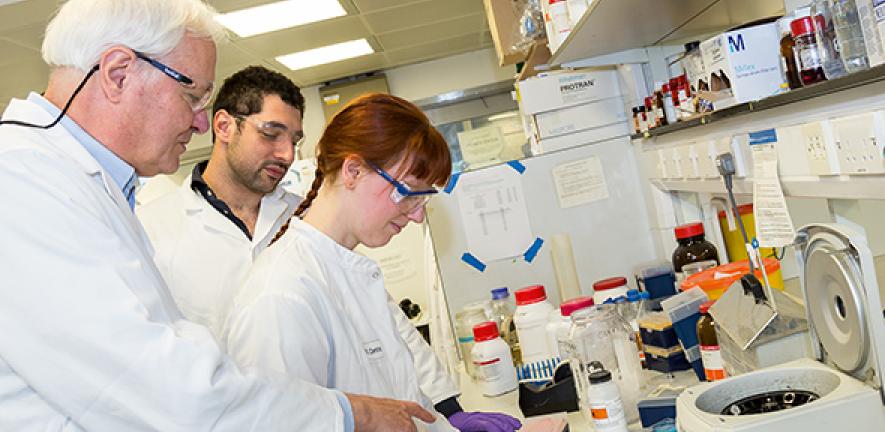
These are the words of Professor Christopher Dobson who, interviewed in the spring issue of Chem@Cam magazine, talks about the twenty years he and his colleagues have spent looking for ways to combat the disease he regards as a plague.
"As antibiotics, immunisation programmes and improved hygiene have greatly reduced infectious diseases, it’s non-infectious conditions – such as heart disease, cancer and now Alzheimer’s – that challenge us. In the UK, it already costs £30 billion a year to care for people with Alzheimer’s disease, " he says. "If no treatments are found, the increasing number of people with this disorder will have crippling impacts on society and economy worldwide."
But as he explains in the 'As I See It' feature on pages 4-5, there is hope. "We’re finding ways to reverse the process. In the recently-established Centre for Misfolding Diseases – that brings together the Dobson, Knowles and Vendruscolo groups and our associates and collaborators – we are developing strategies for combating the protein aggregation associated with Alzheimer's. We have found that small molecules, including drugs used to treat other diseases, can inhibit this process in the laboratory and in a model organism, the nematode worm. The hope is it will work in humans as well. And we’ve found other molecules able to suppress the aggregation of the proteins involved in Parkinson’s disease, one of which is now in clinical trials in the USA."
"We are developing strategies for combating the protein aggregation associated with Alzheimer's."
The new Chemistry of Health building, which is due to open shortly, will - it is hoped - help advance this work.
This is just one of the features in the new issue of Chem@Cam magazine. Elsewhere in the magazine, we report on a new study of patterns of air pollution in Beijing, one of the world's most polluted cities, and how they impact on human health. We profile BBSRC David Phillips Fellow Dr Jenny Zhang, whose Fellowship will help her further her research into creating 'solar fuels'.
We also report on how supramolecular capsules or 'cages' could significantly cut the amount of energy used in industrial processes, and hear from alumni who shared their memories of the department at a recent reunion.
The spring issue of Chem@Cam can be read here.

